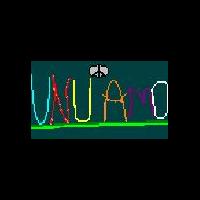Contribuții/Mesaje: 30
Limbă: English
ceigered (Arată profil) 11 august 2010, 23:33:09
When I say "slang" and "colloquialisms", I sort of mean the stuff you wouldn't find in standard, formal English. Sorry for my perhaps "layman"ish interpretation of "slang".
A further question might be: what sort of slang/colloquialisms? Full on slang, e.g. 1337speak but vocalised, regional(ised) slang, or not even sure (you just speak the way you were taught by society, and if it's wrong well that's everyone else's problem)?
EDIT: The last poll response had "language" deleted from the end.
KetchupSoldier (Arată profil) 12 august 2010, 03:34:38
This can get a little crazy: "I'm totes pos that your abbrevs are def awk." (Translation: "I'm totally positive that your abbreviations are definitely awkward.")
Greyshades (Arată profil) 12 august 2010, 04:27:05
 ).
). 3rdblade (Arată profil) 12 august 2010, 04:27:56
ceigered:I think it's worth asking: who here usesI find phrasal verbs, which are colloquial, are a small hurdle, not just for when I teach ESL, but also occasionally when I am trying to think of the right thing to say in Esperanto. There's usually a non phrasal verb equivalent. Eg. Get off (alight), put in (insert), make out (kiss), head off (leave), let off (fart), stick up (rob). And there are many, many more! Sometimes they seem more polite than the more accurate, non-phrasal verb and therefore might not seem colloquial on the surface.slang/colloquialisms in their native language? It'd be interesting to see, since the topic's being done to death again, and I've gotten rather bored talking about what I think of it in Esperanto so I figured a poll would be good fun.
When I say "slang" and "colloquialisms", I sort of mean the stuff you wouldn't find in standard, formal English. Sorry for my perhaps "layman"ish interpretation of "slang".
As for slang I don't use it much in speech. Now and then, I suppose. Generally it's a way of fitting in with some social group. (One of my groups are esperantujuloj.
 )
) ceigered (Arată profil) 12 august 2010, 12:29:42
Greyshades:That last poll option has a typo I believe (given that it's the one that abhors slangToo right - not sure how "I'd" got in there now that I think of it, "I am" is 1000% more logical there... Maybe "except when the brain turns off" should be added as a subclause).
 .
.@ 3rdblade:
Those verbs-with-preposition pairs are an interesting lot (I'd argue that their actually more standard than colloquial, but technically the two can be the same no?
 ). Logically, "get off" (go away from the state of being on top of something) is a better choice than "alight" (old intensive/emphatic prefix plus "light", so approximately "to lighten ones self). But I think the hardest part is that they're not taught as a single word, or the logic is not taught (in English though the logic would be almost impossible to teach I assume?) - I'm having the same problem learning French, learning when which verbs have what prepositions and how it changes the meaning - interestingly, French I think would be easier due to all the old Latin words (e.g. "descendre" instead of "go down"), but if you dissect all those French words they too are also verbs + preposition, the only difference being that the lack of a space separating them makes it seem like a whole word... (Esperanto being naughty and turning what would have been dissectible words from romance languages into single, complete roots, e.g. ripozi).
). Logically, "get off" (go away from the state of being on top of something) is a better choice than "alight" (old intensive/emphatic prefix plus "light", so approximately "to lighten ones self). But I think the hardest part is that they're not taught as a single word, or the logic is not taught (in English though the logic would be almost impossible to teach I assume?) - I'm having the same problem learning French, learning when which verbs have what prepositions and how it changes the meaning - interestingly, French I think would be easier due to all the old Latin words (e.g. "descendre" instead of "go down"), but if you dissect all those French words they too are also verbs + preposition, the only difference being that the lack of a space separating them makes it seem like a whole word... (Esperanto being naughty and turning what would have been dissectible words from romance languages into single, complete roots, e.g. ripozi).Truly an interesting thing!
erinja (Arată profil) 12 august 2010, 14:56:34
I think it's still in relatively common use in the UK. I recall hearing announcements on the London Underground asking you to be careful as you alight.
In turn, we in the US use some grammatical forms that are now considered obsolete in the UK; we use "gotten" in many cases where Brits would say "got".
ceigered (Arată profil) 12 august 2010, 15:13:21
erinja:Careful on calling "alight" obsolete.Sorry if I somehow given that impression, I was merely trying to demonstrate how "alight" is less logically constructed than "get off" according to the slacker rules of Late Modern English, as "get off" implies movement from being on an on position, while "alight" uses remnants of the Old/Middle English intensive particle system to insinuate the sensation of "becoming lighter" and thus making something lighter by taking your weight off of it; indeed it is just as common in many circles and regions.
lavagulo (Arată profil) 12 august 2010, 16:31:13
In the poll above, one of the five possible answers used 'I'm" as an example. "I'm" is a contraction of "I am" and I would hesitate to define a contraction as slang. Informal speech, yes, but slang? Definitely not.
A few days ago, I came across the term "slu" in another part of the forum. I didn't recognize the term and could not find a definition anywhere so I asked what it meant on this forum. I was informed that it meant the same as "sal" by the "cool" minority and was to be used as a substitute for "saluton," since that three-syllable word was judged too long to use. I seriously doubt that I was the only reader on this forum who did not know what "slu" meant. (Please note that I have a mild addiction to the use of understatement and irony, so I hope no one goes into orbit over what I just wrote. I hope, too, that I was understood since "goes into orbit" is slang.)
If readers on this forum encounter a strange word, cannot find it in any dictionary, and have to ask on this forum for the definition of the strange word, then that is a sure indication that the word is simply a figment of someone's imagination. If e-o is designed as a second language for all of the national languages of the world, then the use of slang is an impediment.
I am simply expressing my opinion of slang here and I note that many others on this forum are in agreement. I really, truly hope that I can express my opinion this time without creating a controversy. I say that because some of my previous posts have really been taken out of context. In fact, I got raked over the coals with my last post and I was doing no more than expressing my opinion in response to an inquiry.
To the overwhelming majority of you on this forum, please understand that I don't sit around the house pulling off the wings and legs of flies that I caught, giggling to myself, and trying to think of controversial things to post on the lernu! forums. Honest!!
qwertz (Arată profil) 12 august 2010, 17:46:14
lavagulo:I heard that "Slu" even isn't presenting latin letters. Maybe it's just a figurative presentation of a backbone (="S", most folks should have one), a straw ("l", some folks use it) sticking in a (cocktail) drink (="u", some folks like it). Ŝatenda!
A few days ago, I came across the term "slu" in another part of the forum. I didn't recognize the term and could not find a definition anywhere so I asked what it meant on this forum. I was informed that it meant the same as "sal" by the "cool" minority and was to be used as a substitute for "saluton," since that three-syllable word was judged too long to use. I seriously doubt that I was the only reader on this forum who did not know what "slu" meant. (Please note that I have a mild addiction to the use of understatement and irony, so I hope no one goes into orbit over what I just wrote. I hope, too, that I was understood since "goes into orbit" is slang.)

ceigered (Arată profil) 13 august 2010, 13:11:31
lavagulo:I was informed that it meant the same as "sal" by the "cool" minority and was to be used as a substitute for "saluton," since that three-syllable word was judged too long to use.As a semi-user of slu, I am sorry to hear that such an impression has been given that it is an elitist sort of thing to use "slu" - this is not the case, it's more a greeting between mates, to be chilled.
lavagulo:If readers on this forum encounter a strange word, cannot find it in any dictionary, and have to ask on this forum for the definition of the strange word, then that is a sure indication that the word is simply a figment of someone's imagination.Haha, well, that's actually what Slu is - it's not meant to be SERIOUS - well, it can be, but I doubt Qwertz would like to see it become a controversy (although if you do qwertz then feel free to correct me
 ).
).lavagulo:If e-o is designed as a second language for all of the national languages of the world, then the use of slang is an impediment.True, I agree. I reckon that my main thrust for supporting this impediment may be due to my nature of being very much "the devils advocate" and liking things a bit chaotic - I assume such (slang, chaotic language change etc) will happen naturally though. Anyway, back on to my further question to the forumanoj, given that slang, and to a lesser extent colloquialisms, are sort of roadblocks to understanding, should they be "annihilated" per se from the language, or should there be room? Perhaps slang and colloquialisms have ties to cultural expression (maybe not, but perhaps that could be discussed).





